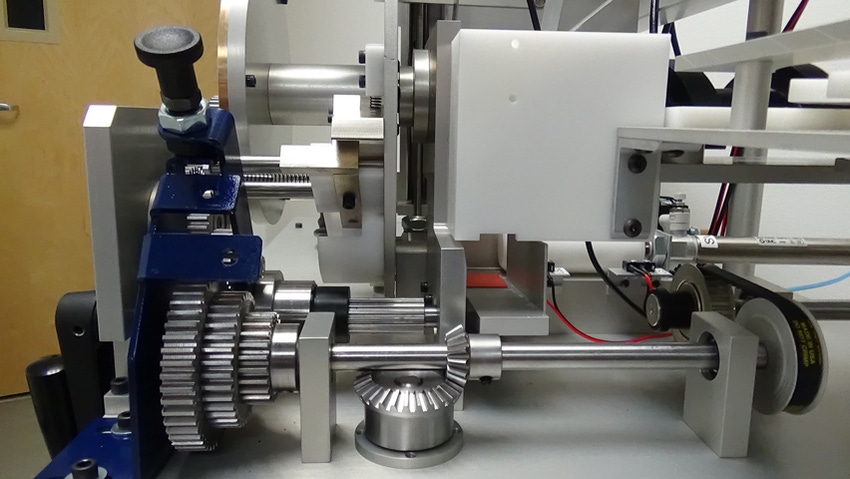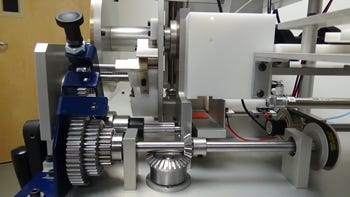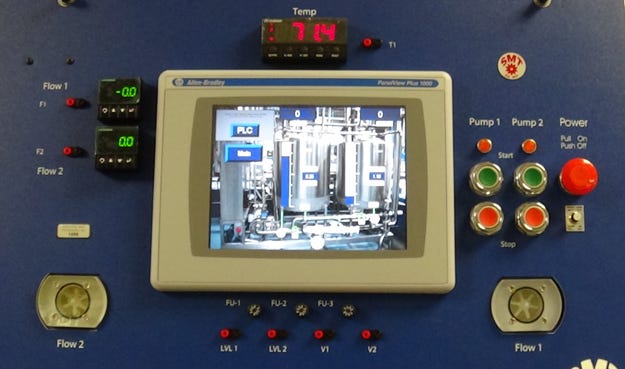Scientific management techniques address skills shortage
Hiring the right employee with the right skill set can be challenging. Just ask any H.R. manager. Now that there is a skills shortage within the manufacturing industry, it's become even more difficult to ensure that the person hired has the skills he or she claims to have. Training is also challenging, and many companies do not have the equipment or in-house curriculum to provide the skill enhancement employees require.
March 3, 2015

Hiring the right employee with the right skill set can be challenging. Just ask any H.R. manager. Now that there is a skills shortage within the manufacturing industry, it's become even more difficult to ensure that the person hired has the skills he or she claims to have. Training is also challenging, and many companies do not have the equipment or in-house curriculum to provide the skill enhancement employees require.
Scientific Management Techniques Inc. (SMT; Merrimack, NH) began offering its unique services in 1971, primarily by delivering technical evaluation services to industry and Fortune 500 companies through in-house training programs using its hands-on Manufacturing Skill Assessment Machines. According to Stephen Berry, President of SMT, the assessment program simplifies the hiring process, lowers risk and reduces the cost of hiring, particularly the risk and cost involved in hiring the wrong person.
|
Packaging machine simulator from SMT. |
SMT offers five hands-on assessment machines targeting mechanical, electrical, PLC, CNC and process control skills. Its industrial skills Assessment Machines and Assessment Protocols are used in the hiring process for the selection and evaluation of maintenance mechanics, machine operators, industrial electricians, PLC technicians, electro-mechanical personnel, CNC operation personnel and process control technicians.
In 2010, SMT started its Education Division, which is now putting its Manufacturing Skills Assessment Machines and curriculum into community colleges and technical schools. "It started when one of our industrial clients told us, ‘if the local community college had your curriculum, we'd be in great shape,' " said Berry. "That's when we decided that our machines would be a good solution for training programs in the education system."
"Many of the schools work with the same clients we work with to help provide training to employees of large global organizations," said Berry. For example, Southwest Tennessee Community College in Memphis, TN, is now using the program that SMT has with its client Unilever.
"It's a great solution," he added. "When a school deploys our program and curriculum, it can be assured that it's highly effective and has already been proven over the past three and a half decades in industrial settings."
For training to really benefit both companies and employees, the training has to improve performance and profitability, be highly effective in a short period of time and be delivered efficiently. "Typically you can have an extremely effective machine operator in six to eight weeks," said Berry. "They first go through the basic program, then get some on-the-job experience and then go on to the advanced program. That's how we solve the skills shortage."
The program's skill set is universal and fundamental to almost every industry from consumer durables to injection molding and metal fabrication. It is not specific to a single industry. "If you use machinery in the production process at your manufacturing plant, you're our client," said Berry. "The skill assessment machines measure the understanding of a broad range of skills that are fundamental to any machine, whether it's packaging, molding, electrical, PLC or controls. Every machine has a common fundamental or universal system. Understanding a PLC is fundamental, whether you're making munitions or diapers."
|
Process control assessment machine from SMT. |
The Assessment Machines replicate machines used in industry, allowing companies to test the skill level of potential employees. If the potential employee posts an acceptable score, they are hired. "Our Assessment Machines are used in the hiring process as well as for promotions. They are also used more and more to identify training gaps and quantify the effectiveness of training. It helps H.R. people know what training program is needed and who needs a specific training program. Not everyone needs the same training, so this allows companies and schools to deliver highly targeted training, increasing the ROI of training dollars spent."
The portable Assessment Machines weigh about 65 lb and are a cost-effective way for corporations to help those who need additional training without having to purchase large equipment just for that purpose, or interrupt production to provide assessments or training. Schools, in particular, benefit because most cannot afford to purchase actual pieces of equipment, such as molding machines or CNC machining centers.
Currently, SMT has its Manufacturing Skill Assessment Machines at 45 to 50 schools in 19 states. "The schools like our curriculum. It's very dynamic and we're always improving our existing units based on input from our industrial customers," Berry noted.
SMT collaborates with industrial plant managers and operations managers, the people who understand exactly what they need in terms of skills. "With the average age of the workforce moving upwards [and] the retirement of the baby boomers, companies need these skills training and assessment tools more than ever," Berry said. "Frankly, management is alarmed because they recognize the loss of experienced employees over the next 10 to 15 years will be quite high."
Clients purchase the curriculum license and get the updates free. New units can be purchased, as required. SMT's training curriculum incorporates the use of more than 200 training aids. Theory is taught first, then directly applied using the training aids. "Training aids replicate what is happening in an industrial facility, so the student or employee can walk right out to the production floor and see it actually happening," Berry explained.
Berry claims that the ROI on the machines and program is extremely high when companies stop and consider what a bad hire costs. "Our assessment program stops the bad hire," he said. "It tells H.R. whether [the candidates] know what they say they know. A bad hire costs a company two times that person's salary. For a big company that is hiring a dozen people at a time, one or two bad hires isn't so costly, but if you have a 30-person machine shop, one or two bad hires is very costly. With a small organization, the ROI of this assessment program is even stronger."
About the Author(s)
You May Also Like






